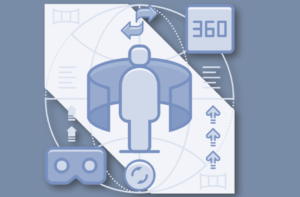The Impact of Immersive Virtual Reality on Learning, Post-Hoc; a Cautionary Tale
 With the growing push to implement innovative technologies in today’s classroom, the prospect of infusing extended reality (XR)-learning has jettisoned education into uncharted territory, creating dynamic learning experiences with a potential breadth of unknown effects (Ahn, Bailenson & Park, 2014; Ahn, Bostick, Ogle, Nowak, McGillicuddy & Bailenson, 2016; Lieberman, 2018). While there are significant merits of transporting learners to places that were previously inaccessible in the traditional classroom through immersive experiences, we must walk back the preconceived notion that because technology itself is engaging, students will be more engaged. Additionally, the K-12 learning environment does not exist in a vacuum; what students experience in one part of their day has the potential to create a ripple effect in their subsequent lessons. This quasi-experimental study looked to explore the effects of XR-learning, specifically virtual reality (VR) on student motivation and engagement, post-hoc, in a middle school. The implications of this research are promising and showed varying results based on engagement. The results themselves provide significant foundations for future investigations, however, the survey tool utilized in this research proved problematic and needs retuning for future studies.
With the growing push to implement innovative technologies in today’s classroom, the prospect of infusing extended reality (XR)-learning has jettisoned education into uncharted territory, creating dynamic learning experiences with a potential breadth of unknown effects (Ahn, Bailenson & Park, 2014; Ahn, Bostick, Ogle, Nowak, McGillicuddy & Bailenson, 2016; Lieberman, 2018). While there are significant merits of transporting learners to places that were previously inaccessible in the traditional classroom through immersive experiences, we must walk back the preconceived notion that because technology itself is engaging, students will be more engaged. Additionally, the K-12 learning environment does not exist in a vacuum; what students experience in one part of their day has the potential to create a ripple effect in their subsequent lessons. This quasi-experimental study looked to explore the effects of XR-learning, specifically virtual reality (VR) on student motivation and engagement, post-hoc, in a middle school. The implications of this research are promising and showed varying results based on engagement. The results themselves provide significant foundations for future investigations, however, the survey tool utilized in this research proved problematic and needs retuning for future studies.







